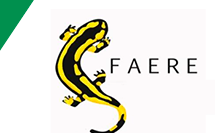Most empirical studies have shown that farmers are risk averse and that the level of risk aversion impacts optimal production decisions but evidence on the magnitude of the impact is rare. We propose to address this question by measuring how optimal production choices (here input use) and farmers' welfare change when farmers are assumed to be risk averse instead of risk neutral. The impact on farmers' welfare is measured using (monetary) measures of the risk premium and certainty equivalent.
We work with simulated data but our production model is calibrated using real data from crop farms in France. The main parameters of the production function are within the range of those estimated in the literature. We consider a simple framework where farmers face only production risk. Output (crop yield) is uncertain due to the presence of a random shock which enters the production function and on which the farmer has no control (e.g., weather conditions). We consider various forms of utility functions and we also go beyond the traditional expected utility framework by considering cases where farmers' preferences may be better represented by Cumulative Prospect Theory.
Preliminary findings show that optimal input use under risk aversion (over a wide range of risk aversion levels) is very similar to optimal input use under risk neutrality and the assumption that farmers are risk averse induce a change in farmers' welfare (compared to the risk-neutral optimal choice) that is almost zero.




